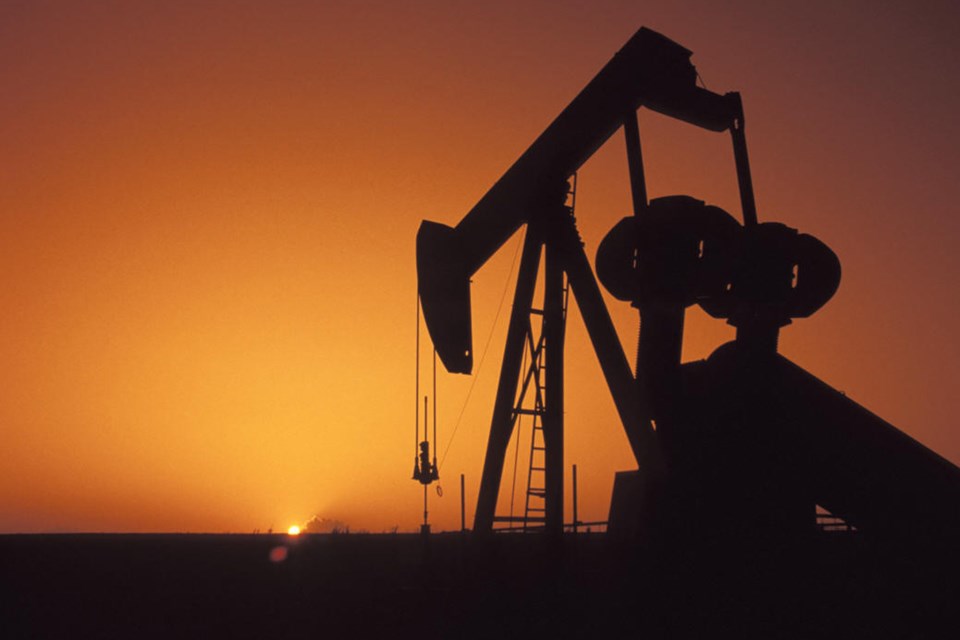MOUNTAIN VIEW COUNTY - With Alberta’s economy strengthening, in part due to higher resource revenues, Mountain View County will continuing to work with oil and gas companies to resolve unpaid taxes owed by those operators, says reeve Angela Aalbers.
The current value of overall unpaid taxes owed to Mountain View County by the oil and gas industry specifically, including written-off taxes, but not including taxes subject to a repayment agreement stands at $409,636, she said.
“As the Alberta economy strengthens and stabilizes, Mountain View County will continue to work with all taxpayers to resolve outstanding tax amounts,” said Aalbers.
“While unpaid tax amounts within the province of Alberta have risen in the past year the amount owing in Mountain View County has declined from the previous amount in 2021 of $731,564.
“This decline is partially attributed to the dedication of our staff that work with outstanding tax accounts to make payment arrangements and reduce outstanding tax liabilities.”
Mountain View County has written off $1,649,700.71 in taxes and penalties that were uncollectible from the oil and gas sector, primarily due to insolvency and bankruptcy situations, since 2015, she said.
Aalbers' comments come as the Rural Municipalities of Alberta (RMA) released the results of a member survey indicating that approximately $253 million in property taxes currently owed to rural municipalities by oil and gas companies have gone unpaid.
That represents a 3.3 per cent increase from unpaid amounts reported owed for the 2020 tax year and a 46.7 per can increase from 2019.
“As the oil and gas industry’s fortunes have improved over the past year, both oil and gas companies and the government of Alberta have benefited tremendously,” said RMA president Paul McLauchlin.
“Meanwhile, rural municipalities, which play a critical roles in providing access to oil and gas resources are left behind, still unable to collect the taxes required to fund core infrastructure and operations.
“Not only is this unfair to municipalities, it is unfair to every rural taxpayer who must pay more or receive fewer services to offset those taxes not being paid by the oil and gas industry.”
The unpaid tax situation has persisted “due to a lack of action on the part of the government of Alberta to hold industry accountable,” he said.
Jason Nixon, Rimbey-Rocky Mountain House UCP MLA and minister of Environment and Parks, provided the following statement to the Albertan: “After hearing concerns from municipalities, the minister of Municipal Affairs, Ric McIver, is looking for additional options to help municipalities recover unpaid taxes beyond special liens.
“I encourage municipalities to use all means Alberta’s government has provided for tax recovery and to engage with us on additional tools to ensure compliance.”
Nathan Cooper, Olds-Didsbury-Three Hills UCP MLA, also provided the Albertan with a statement: “Municipalities are being left out in the cold when it comes to overdue property taxes but more importantly than municipalities is the hundreds of landowners in Olds-Didsbury-Three Hills that have had to fight tooth and nail over the past number of years for fair compensation with respect to surface rights.
“I encourage the minister to continue to work to find a solution as I know he is currently working on it.”
The province recently restored the ability of municipalities to place special liens on oil and gas properties, as well as allowing the Alberta Energy Regulator to consider payment of property taxes when reviewing energy licence approval and transfer application.
RMA president McLauchlin says those changes don’t go nearly far enough.
“Whie the province has taken some steps related to this issue, none solved the problem,” McLauchlin said. “If companies want to profit from Alberta’s oil and gas resources, they should be required to pay all property taxes in full and on time.”
Increased activity in the oilpatch is actually costing municipalities more in terms of infrastructure maintenance, including managing the road network, he said.
“Property taxes are needed to pay for the construction and maintenance of roads and bridges for the oil and gas industry to access resources, as well as to provide everything from water to wastewater collection to recreation and many other services to rural residents,” he said.



